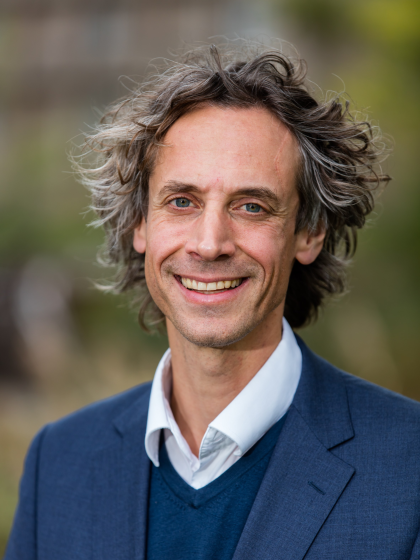dr. K.E. (Kees) Keizer

BCEP2015 Conference on Environmental Psychology, 24-26th of August 2015
Electric vehicles: early stage adoption processes
Most research in the area of Electrical Vehicles (EVs) focuses on technical issues like battery capacity and charging systems. Much less attention is paid to the links between EVs and the wider society, including non-technical issues. In this proposal we focus on the early stages of (potential) market penetration of EVs, and in particular the role of early adopters (consumers and others). We aim (1) to understand the behaviour of crucial actors for the market introduction of EVs (2) to identify barriers and enablers for innovations in the first stage (3) to identify the role of actors in the ‘environment’ of early adopters (e.g. governments, firms, consumers), for these enablers and barriers. Project 1 “innovation transitions from an economic perspective” focuses on the behaviour of early adopters from an (evolutionary) economic systems perspective. Project 2 “innovation transitions from a behavioural-psychological perspective” studies the motivational factors influencing early adoption. Project 3 “the environment of early adopters from an innovation’s perspective” examines the role of crucial actors in the ‘environment’ of early adopters from the perspective of dynamic enablers and barriers’. Project 4, the integrative project, translates the findings to innovation theory, and to the EV arena, wider society and policy makers. We will use insights and approaches from innovation theories, evolutionary economics, several psychological theories (including the theory of the meaning of material possessions and goal framing theory), political economy, and management theories. Methods used include literature research, joint questionnaires, interviews, analysis of innovations in the past, modelling, and actor analysis.
The project is conducted by a multidisciplinary team of economists, psychologists, and transport policy researchers. The project is funded by the Netherlands Organisation for Scientific Research (NWO). For more information:http://www.nwo.nl/projecten.nsf/vk2010/ned/2300158424
Low Carbon at Work - LOCAW
LOCAW aims to advance our understanding of the drivers of and barriers to sustainable lifestyles by an integrative investigation of the determinants of everyday practices and behaviours within large scale organisations. We will study which societal, organisational and individual factors affect environmental behaviour at the workplace, and the relationship between environmental behaviours at work and at home.
LOCAW will examine large organizations in the public as well as the private sector, including light as well as heavy industry. The research will be undertaken in six countries: Italy, Romania, Spain, Sweden, The Netherlands and the UK. The research will be undertaken by a multidisciplinary team working in the areas of psychology, sociology, geography, business studies, and artificial intelligence. LOCAW is funded by the European Union FP7 Programme. The total budget for this project add up to € 1,9 million. For more information:http://www.locaw-fp7.com/
Governance, Infrastructure, Lifestyle Dynamics and Energy Demand: European post-carbon communities - GILDED
The overall goal of GILDED is to identify social, economic, cultural and political changes which could help rural and urban households in Europe consume less energy. While technological innovation can make low-carbon energy sources economically and environmentally viable, their impact in reducing carbon-intensive energy use will depend critically on broad public and political commitment to such a reduction. GILDED will target socio-economic, cultural and political influences on individual and household energy consumption through five regional case studies. Each case study focuses on a medium-sized city along with nearby rural areas. Investigating individuals’ lifestyle choices and their understanding of energy issues will provide insights into patterns of energy-related behaviours characterising emergent lifestyle types, and the particular drivers impacting on consumption decisions. The social, cultural and political contexts in which these behaviours are embedded will be addressed through analysis of the structural factors and actors (from local to EU level), including governance networks, physical environments, and materialized and institutionalized transport and provisioning networks. This combined ‘top down’ and ‘bottom-up’ perspective on household consumption will be utilised to inform the analysis of an energy-reduction initiative or experiment in each case study region. Principles derived from the lifestyle, structural and initiative studies will be utilised to structure agent-based models of policy implementation and change response.
GILDED is a three year collaborative research project funded through European Union Framework Programme Seven, running from December 2008-2011. For more information: www.gildedeu.org
